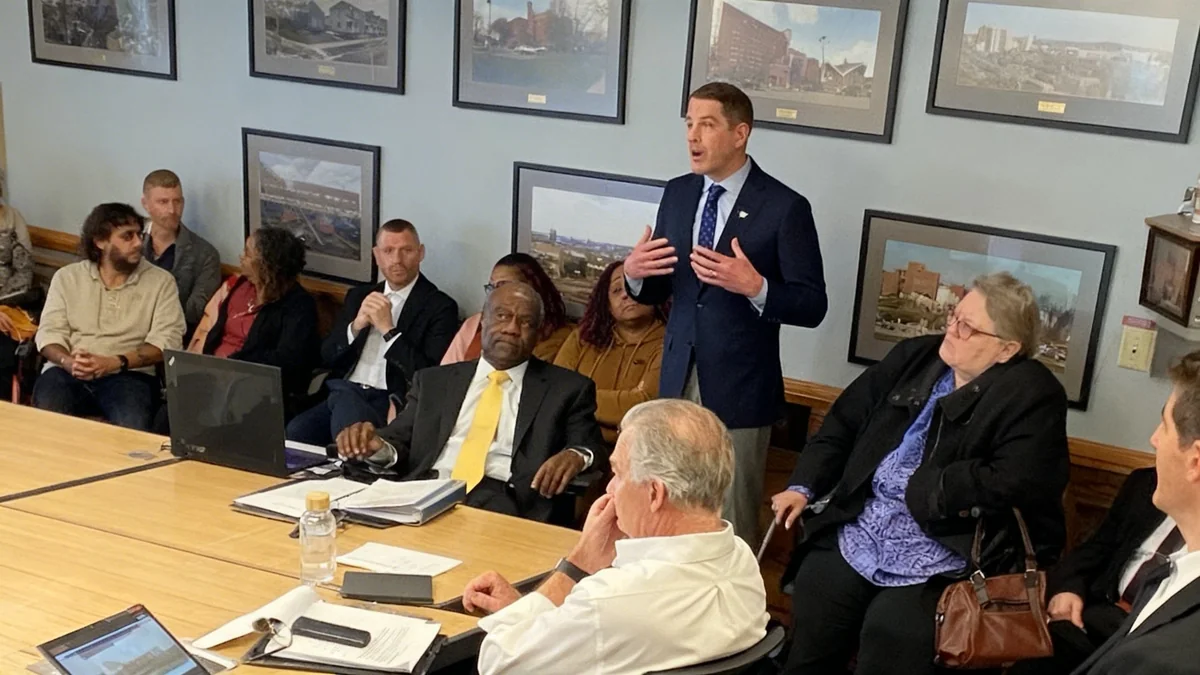A potential United States government shutdown, expected as early as next week, could introduce significant disruptions to the nation's housing market. The shutdown threatens to halt the National Flood Insurance Program (NFIP) and cause delays in mortgage processing for government-backed loans, creating uncertainty for homebuyers, sellers, and real estate professionals.
Key federal agencies, including the Department of Housing and Urban Development (HUD) and the Internal Revenue Service (IRS), are preparing for reduced staffing. This could create bottlenecks in verifying essential documents required for closing real estate transactions, affecting both buyers and sellers across the country.
Key Takeaways
- A government shutdown could suspend the National Flood Insurance Program (NFIP), preventing the issuance of new policies after September 30.
- Mortgage approvals for FHA, VA, and USDA loans may face significant delays due to staff reductions at federal agencies.
- While automated systems may remain active, any loan process requiring manual staff review could be suspended.
- Over two million federal employees face potential furloughs, which could reduce their willingness to buy or sell homes amid financial uncertainty.
- The IRS may stop issuing tax return transcripts, a document often required by lenders for mortgage underwriting.
Mortgage Processing Delays Expected
The primary impact on the housing market will likely be felt in the mortgage sector, particularly for loans backed by the federal government. The Federal Housing Administration (FHA), Department of Veterans Affairs (VA), and U.S. Department of Agriculture (USDA) all rely on federal staff for certain operations.
According to the National Association of Realtors (NAR), contingency plans are in place. The FHA is expected to continue endorsing new single-family mortgages through its automated systems. However, other functions will be affected.
"FHA systems will remain operational, but any actions that require staff involvement may be delayed or suspended during a shutdown," NAR stated in a bulletin to its members.
This means services like condominium project approvals could be put on hold indefinitely. The Mortgage Bankers Association (MBA) also anticipates a “significant curtailment of certain operations requiring agency staff intervention or action” for these government loan programs, potentially leaving many aspiring homeowners in limbo.
Past Shutdowns Offer a Glimpse
The last major government shutdown occurred from December 22, 2018, to January 25, 2019, lasting 35 days. While a NAR survey at the time found that three-quarters of real estate agents reported no impact on their deals, 11% did see an effect. Among those affected, a quarter of them had clients who decided not to buy a home due to the general economic uncertainty created by the shutdown.
Flood Insurance Program Faces Expiration
A critical deadline coincides with the potential shutdown: the authorization for the National Flood Insurance Program (NFIP) expires on September 30. If Congress fails to pass a reauthorization, the program will lapse.
An NFIP lapse means the government cannot issue new flood insurance policies or renew existing ones. This would directly impact real estate transactions in designated special flood hazard areas, where federal law requires such insurance for properties with federally backed mortgages.
During a lapse, the federal mandate to purchase flood insurance is suspended. The decision to proceed with a mortgage in a flood zone without NFIP coverage would fall to individual lenders, creating an inconsistent and uncertain lending environment.
Alternatives and Workarounds
While an NFIP lapse would be disruptive, some alternatives exist:
- Private Flood Insurance: The private market for flood insurance will remain operational and is an option for homebuyers. A policy change in 2022 allows FHA borrowers to use private flood insurance policies.
- Policy Assignments: Existing NFIP policies can be assigned from a seller to a buyer at closing. Insurers can simply change the name on the policy without needing to issue a new one, providing a workaround for some transactions.
Ripple Effects on the Broader Market
Even transactions not directly involving government-backed loans could face hurdles. Lenders for conventional loans often require documentation that can only be provided by federal agencies. This includes tax return transcripts from the IRS and Social Security number verifications.
The IRS Impact
During the 2018 shutdown, the IRS suspended the issuance of tax return transcripts. The roughly 12% of staff who remained on duty were only permitted to process mail containing payments to the government and were not allowed to perform most other taxpayer services, including answering phone calls or releasing liens.
Furthermore, the shutdown's economic impact on over two million federal civilian employees could dampen housing demand. These workers, concentrated in Washington, D.C., and states like California, Virginia, Maryland, and Texas, may be furloughed or face delayed paychecks. This financial instability could cause many to postpone major life decisions like buying or selling a home.
While government-sponsored enterprises like Fannie Mae and Freddie Mac are not expected to have their staffing affected, the inability of borrowers to obtain necessary third-party verifications from government agencies can still stall the closing process.
An Uncertain Outlook
The likelihood of a shutdown remains high as lawmakers struggle to reach a budget agreement. Political strategists have placed the odds of a shutdown at nearly 100%, citing a lack of a clear path forward for negotiations between the parties.
Adding to the concern, the White House Office of Management and Budget (OMB) has reportedly instructed federal agencies to prepare plans for permanent staff reductions, a significant departure from the temporary furloughs used in past shutdowns. This raises the stakes in the current standoff and could signal a more prolonged and impactful disruption if an agreement is not reached.
The Congressional Budget Office estimated that the 35-day shutdown in 2018-2019 resulted in a temporary $11 billion hit to the economy, of which $3 billion in economic activity was permanently lost. A similar event now could further shake consumer confidence in a housing market already dealing with high interest rates and affordability challenges.





